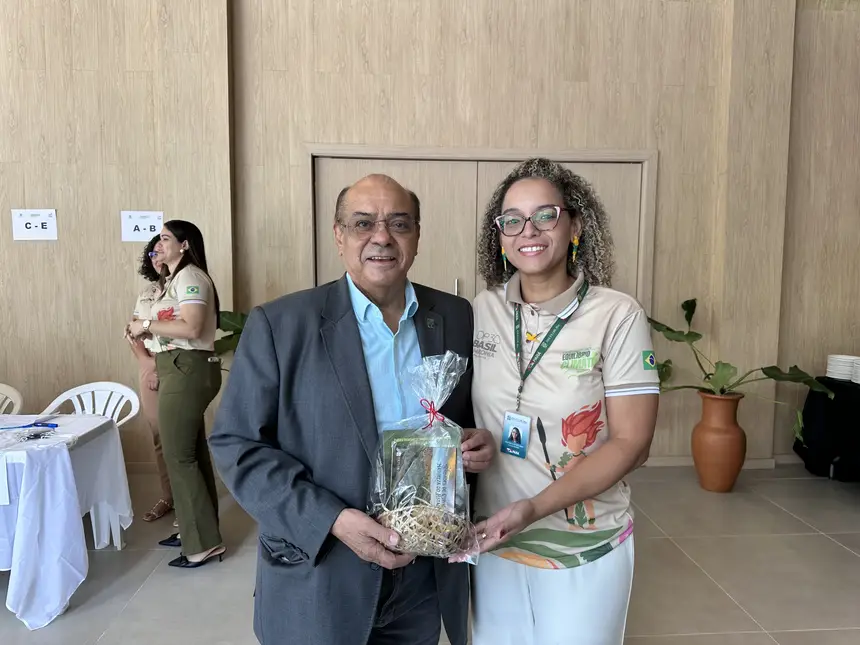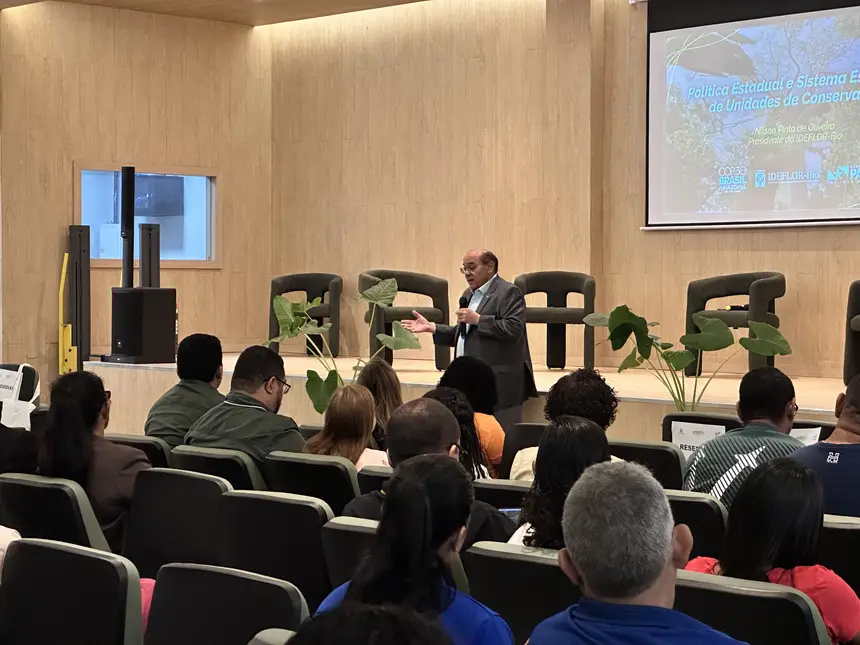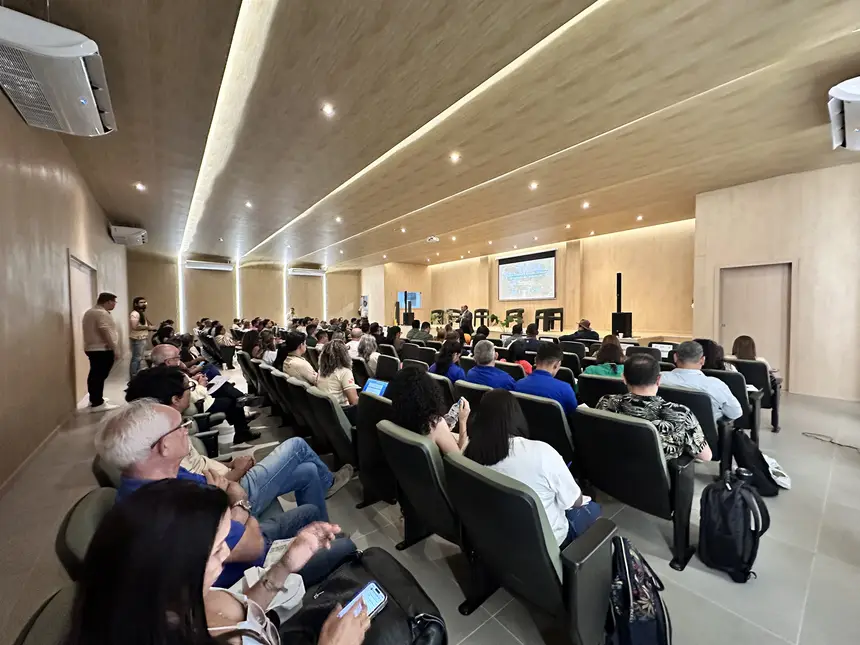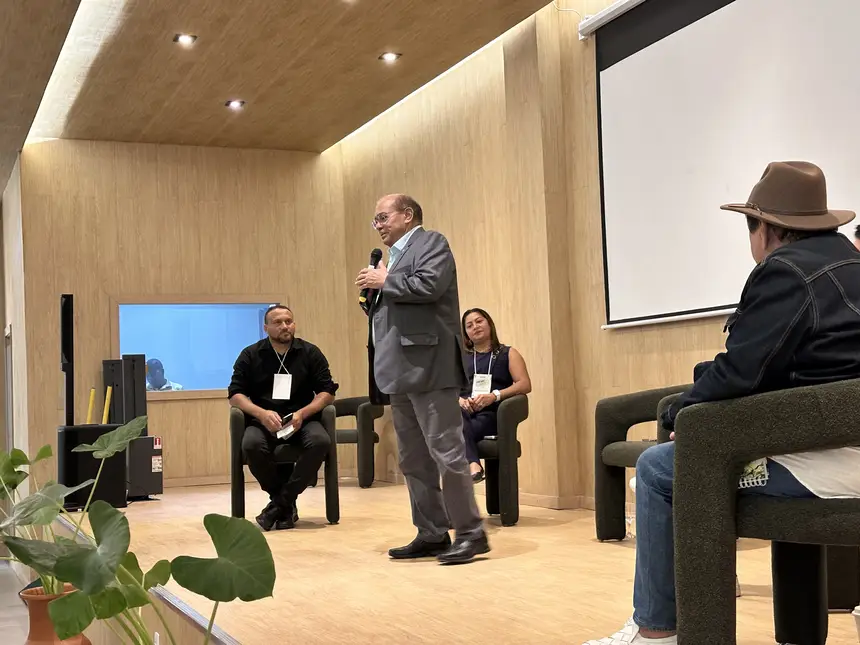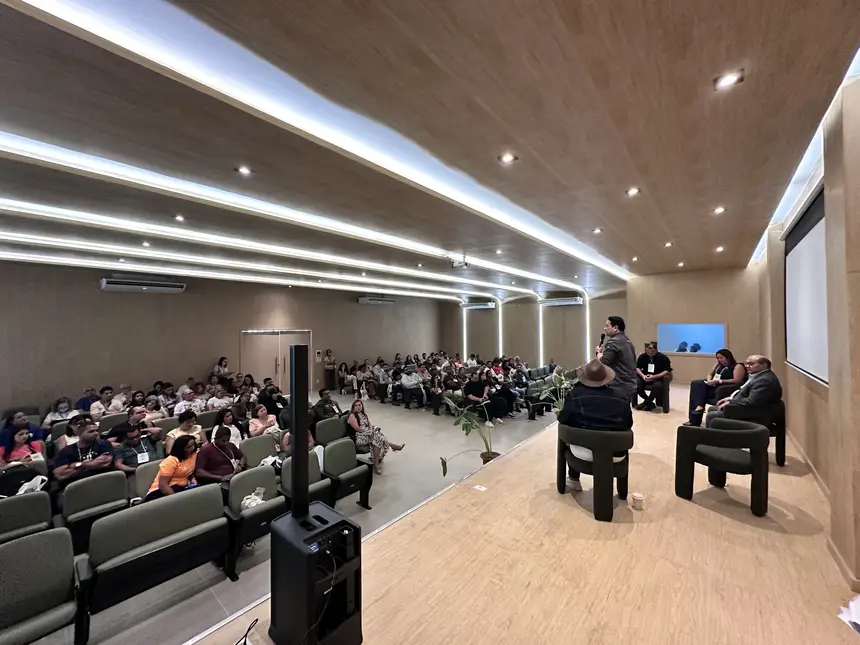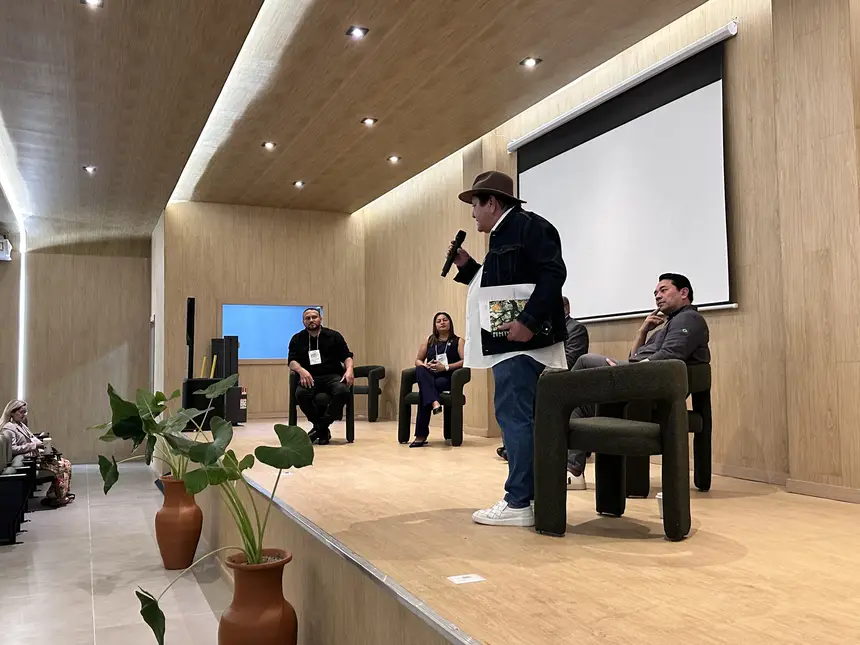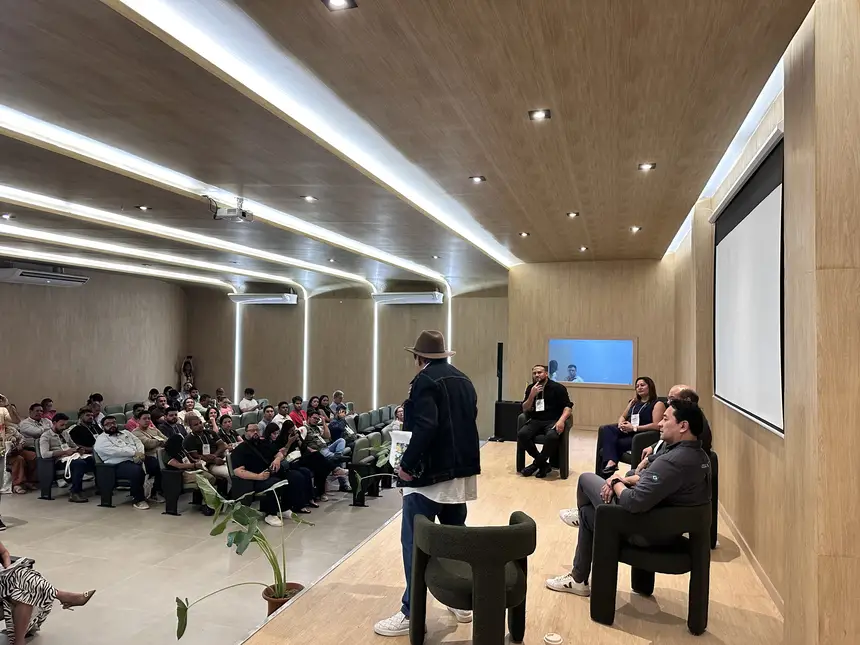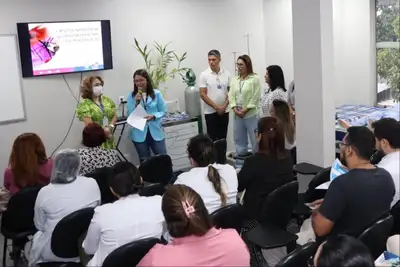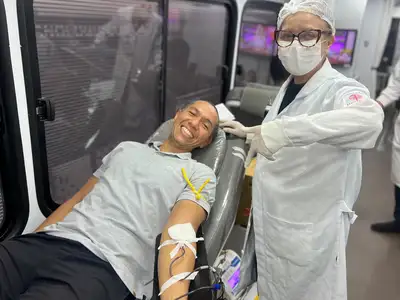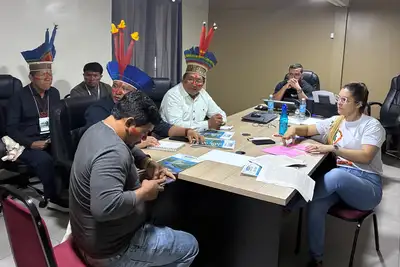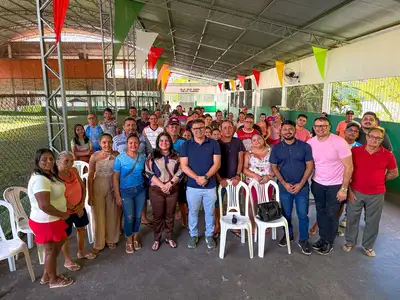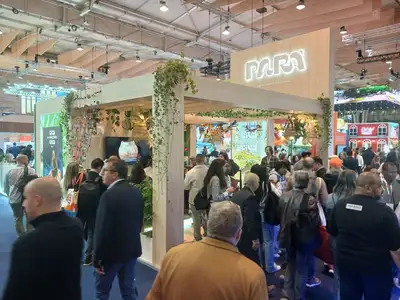Seminar brings together 47 municipalities from Pará to strengthen environmental management
Secretaries of the Environment, technicians, and municipal leaders reinforce the mobilization around the climate agenda and the creation of new conservation units
The Institute for Forest Development and Biodiversity of Pará (Ideflor-Bio) started, on the morning of this Thursday (6), the Seminar "Municipalities of Pará in Climate Balance," gathering representatives from 47 municipalities in the auditorium of the environmental agency in Belém. Promoted through the Directorate of Biodiversity Management (DGBio), the meeting continues until Friday (7), with technical tables and presentations of local experiences, consolidating the commitment of municipal administrations to conservation and addressing climate change.
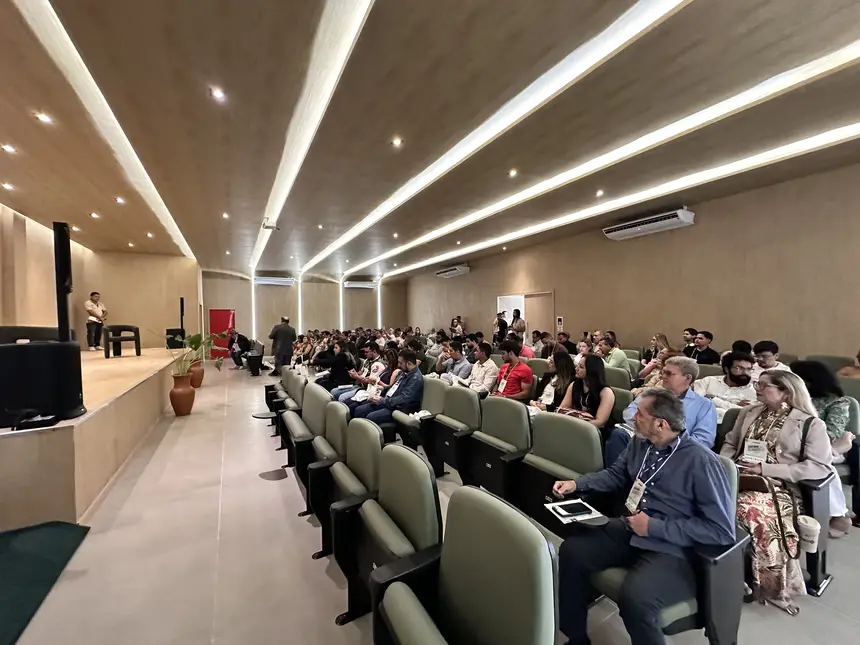
The opening table included the presence of the president of Ideflor-Bio, Nilson Pinto; the president of Iterpa (Institute of Lands of Pará), Bruno Kono; the mayor of Concórdia do Pará, Elisangela Celestino; the Secretary of the Environment of Salvaterra, Igor Barros, and the director of Biodiversity Management of Ideflor-Bio, Crisomar Lobato. The audience, composed of secretaries of the Environment, technicians, and municipal leaders, reinforced the mobilization of local governments around the climate agenda and the creation of new conservation units.
Focused on practical guidance for municipal managers, the Seminar presents guidelines for the application of the State Policy for Conservation Units (Peuc) and the State System of Nature Conservation Units (Seuc). During the two days of programming, lectures and experience tables will be held on legal, normative, and administrative requirements for the implementation and management of protected areas, as an essential part of the state climate strategy.
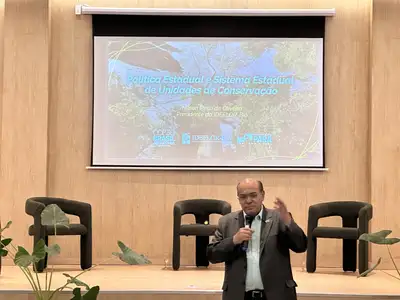
Partnership - In greeting the participants, Nilson Pinto highlighted the relevance of partnerships with municipalities and the State's commitment to support new environmental protection initiatives. "From today, Belém becomes the center of attention, as we will discuss the future of humanity based on the measures we will take to preserve the environment. We hold this Seminar to assess our progress, celebrate achievements, and plan the next steps," said the president of Ideflor-Bio, also recalling the 36 years of the Environmental Protection Area (APA) Marajó, the first state conservation unit, and announcing the preparation of an agreement with the Federal University of Pará (UFPA) to develop the ecological-economic macrozoning of the region.
Nilson Pinto also congratulated the managers present who succeeded in creating municipal conservation units, such as Concórdia do Pará and Salvaterra, technically supported by Ideflor-Bio. According to him, initiatives like these show that the advancement of the environmental agenda depends on institutional cooperation, political mobilization, and local commitment. "The creation of the first conservation unit, promoted through this action, demonstrates a commendable commitment, and we are very proud of it," he added.
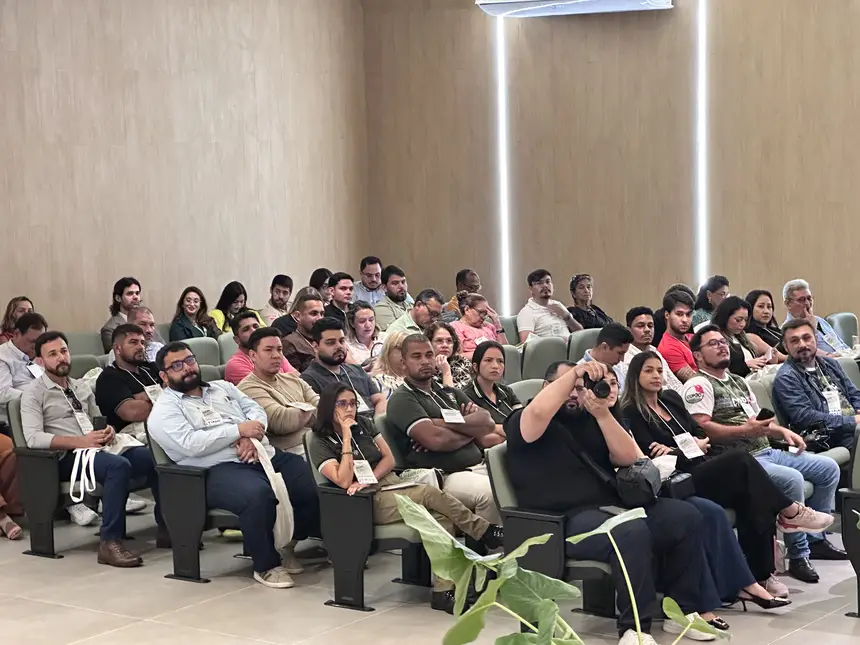
Bruno Kono reinforced the role of municipalities in the effectiveness of environmental policies. He highlighted the joint work between Ideflor-Bio, Iterpa, and municipal secretaries of the Environment. "Environmental and land management cannot be done in isolation. There is no way to have effectiveness in any public policy if we do not understand the reality of each municipality and its particularities," he stated.
The president of Iterpa also recalled that the modernization of state management enabled the creation of new conservation units, approval of management plans, and the expansion of forest concessions, strengthening the low-carbon economy and the environmental market.
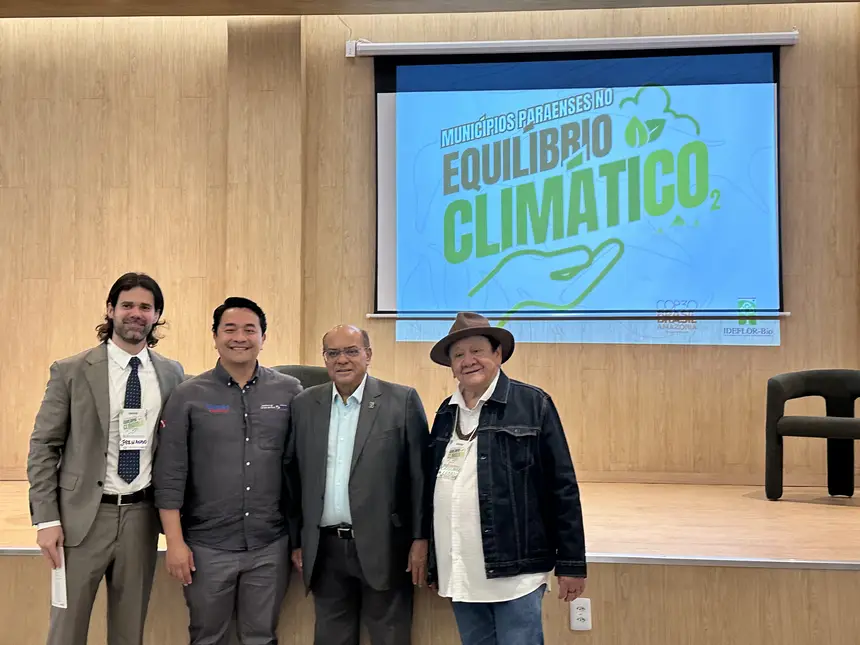
Incentive - The mayor Elisangela Celestino emphasized the importance of the technical support received for the creation of the Municipal Forest, already formalized and regularized in her municipality. "We went through the entire process with the community, with field research and guidance from the Institute. Today, we have our Forest decreed and officialized. Now, we ask that this partnership continues in the management phase, because we know that the challenge is to seek resources and structure the administration of the area," she stated.
The Secretary of the Environment of Bujaru, Leuda Coelho, highlighted the importance of creating a conservation unit in her municipality, in the space of the old Engenho do Bom Intento, to preserve the history and nature of the region, in addition to generating income. "Bom Intento is part of the history of Bujaru, and the creation of this space, which is close to quilombola areas, allows for income generation for these families, in addition to preserving the ruins and the nature of the region," she emphasized.
The secretary Igor Barros also reported the struggle to formalize the first conservation unit of Salvaterra, located on the banks of the Marajó Bay. According to him, after years of obstacles, the creation finally became a reality with technical support from Ideflor-Bio. "We have come this far; it was not easy. Now, we have a great job ahead: to make this area work, deliver results for the municipality, for Marajó, for the Amazon, and for the world," he emphasized.
Positive results - Closing the opening table, the director Crisomar Lobato emphasized that the history of municipal units in Pará is recent but advances rapidly with concrete results. He cited as a milestone the process of reevaluation of old protected areas and their transformation into municipal units. "Our goal is to protect green areas, including in urban zones. Belém is a great example, with the Rodrigues Alves Forest, preserving native forest in the heart of one of the largest metropolises in the Amazon. We want other municipalities to follow this path," he added.
Currently, Pará has 42 municipal conservation units, of which 19 are of Integral Protection, totaling 4,442.86 hectares, and 23 are of Sustainable Use, with 83,577.03 hectares — more than 88 thousand hectares dedicated to the preservation of biodiversity. Thirteen of these units were created with technical guidance from Ideflor-Bio, a direct result of the partnership with the municipalities.
After the day's lectures, participants visited the Utinga State Park and attended a lecture on the conservation unit, present equipment, and management of the space, given by the manager of the Administrative Region of Belém, Júlio Meyer.



